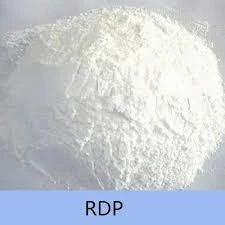
Oct . 14, 2024 14:49 Back to list
mortar adhesive additive
The Role of Mortar Adhesive Additives in Construction
In the realm of construction, the quality and performance of mortar are crucial for ensuring the durability and stability of structures. Mortar, a fundamental component in masonry work, typically consists of a combination of cement, sand, and water. However, to enhance its properties and functionality, various additives are employed, with adhesive additives being particularly significant.
Mortar adhesive additives are essential for improving the bond strength between mortar and the substrates it adheres to. These additives are often polymer-based, which means they can improve flexibility, adhesion, and resistance to water. By incorporating these additives, builders can achieve a stronger and more durable mortar that can withstand environmental stresses, such as temperature fluctuations and moisture penetration.
One of the primary benefits of using adhesive additives in mortar is enhanced adhesion to a variety of surfaces. Traditional mortar may struggle to adhere to smooth or non-porous materials like concrete blocks, tiles, or glass. However, adhesive additives modify the surface tension properties of the mortar, allowing it to form a better bond with these challenging substrates. This is crucial in modern construction, where diverse materials are often used together.
mortar adhesive additive

Additionally, these additives contribute to the overall workability of the mortar mix. They can improve the mixture's flow and extend its open time, allowing for easier application and manipulation on-site. This feature is particularly beneficial in large-scale projects where time and efficiency are critical.
Furthermore, mortar adhesive additives also enhance the mortar's resistance to external factors. For example, mortar with adhesive additives tends to have better water resistance, reducing the risk of efflorescence and other moisture-related issues. This characteristic is especially important in regions with heavy rainfall or varying climatic conditions, where the integrity of the structure can be compromised by water infiltration.
In summary, the incorporation of mortar adhesive additives represents a vital advancement in construction technology. These additives not only improve adhesion and workability but also enhance the overall durability and performance of mortar. As construction practices evolve and the demand for better-performing materials grows, the use of these additives will continue to play a significant role in ensuring the longevity and stability of our built environments. Embracing these innovations allows builders to meet the challenges of modern construction while providing safe and reliable structures for years to come.
-
Versatile Hpmc Uses in Different Industries
NewsJun.19,2025
-
Redispersible Powder's Role in Enhancing Durability of Construction Products
NewsJun.19,2025
-
Hydroxyethyl Cellulose Applications Driving Green Industrial Processes
NewsJun.19,2025
-
Exploring Different Redispersible Polymer Powder
NewsJun.19,2025
-
Choosing the Right Mortar Bonding Agent
NewsJun.19,2025
-
Applications and Significance of China Hpmc in Modern Industries
NewsJun.19,2025







